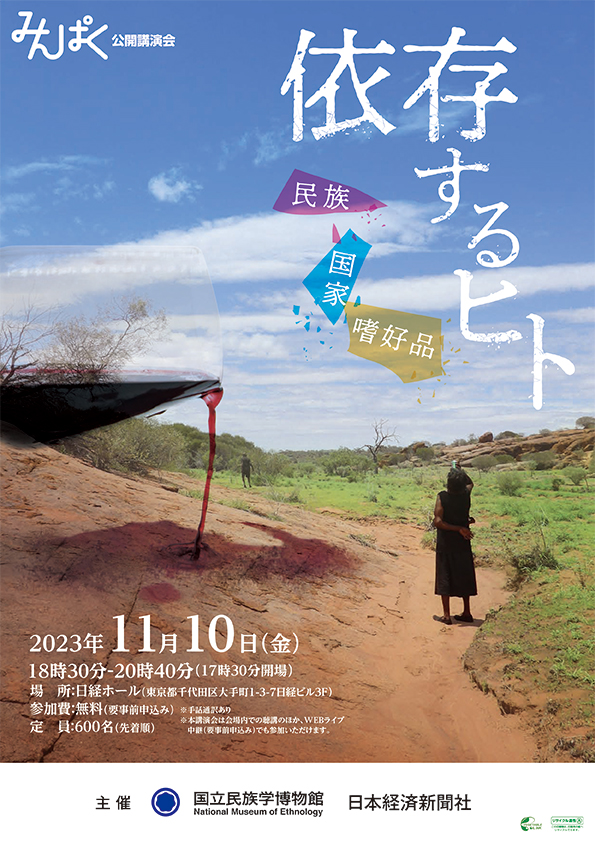Understanding Conflicts Involving the Wills and Intentions of Individuals, Affiliate Groups, and the Nation-State, and the Realization of a Nation-State Comprising Diverse Ethnic and Cultural Group (April 2023-March 2026)
Theme Category: Ethnicity and the Nation-State
Project Leader: NOBAYASHI Atsushi
Project Period: April 2023–March 2026
Purpose and content of the project
This project aims to critically examine previous discussions on the relationship between nation-states and ethnic groups from an anthropological perspective and to explore a multicultural nation’s ideal state, in which individuals’ intentions and the cultural groups to which they belong are respected.
In modern societies, most people except for the stateless, belong to one or more sovereign states, which is a result of our circumstances at birth. We are born and live as members of a conscious cultural group, a broadly defined ethnic group. Autonomy supported by a certain level of unity with the concerned group can be demonstrated at various levels, such as by compatriots, inheritance of lifestyles and customs, acceptance or protection of language, religion, etc. Additionally, it includes the right to self-governance or independence, and it has often caused contradictions with the nation-state. What occurs here is that the benefits and disadvantages of individuals belonging to the nation-state and those of individuals belonging to ethnic or cultural groups do not necessarily coincide in the context of their relationship with the nation-state. Further, conflicts and oppression among individuals, groups of affiliation, and nation-states often arise when their advantages and disadvantages do not coincide.
This project clarifies the conflicts and oppression that occur between individuals and the nation-state, as well as their factors, using the ethnic and cultural groups to which the individuals are affiliated as units of analysis. It then discusses how nation-states can create conditions in which diverse cultural groups are respected.
Previous studies have recognized that the concept of ethnicity is ambiguous and difficult to tackle as a concept for analyzing and evaluating subjects. However, by fully understanding and paying attention to the concept of “ethnicity” as a whole, it becomes an especially useful concept that cannot be replaced by other expressions. Changing the granularity of the perspective of ethnicity and understanding the actual state of ethnic recognition in nation-state policies and the like will become an advantage in linking the discussion of ethnicity and race in political science and sociology with that of anthropology. Moreover, by expanding our perceptions of cultural groups, the relationship of groups with different consciousness and nation-states can be highlighted.
Cultural anthropology has comparable advantages to other fields as an approach to attract differences in size, era, and relative position of the target cultural group to the individual, the smallest unit of affiliation. This is its major difference from political science and sociology, which analyze the present and past of various peoples and look into the future, on the presumption of a sovereign nation-state.
Based on this basic idea, this project deals with several groups of issues that have strong influences and interrelationships between ethnic groups and nation-states and elucidates the advantages, disadvantages, and contradictions that exist between individuals, cultural affiliations, and nation-states. Specifically, the following themes can be assumed:
① Coexistence of multicultural nation-states and ethnic groups: for example, citizen management and ethnic recognition, cultural (language/education/religion) policies, and economic policies.
② Indigenous peoples and the nation-state: for example, indigenous peoples policy or inter-state relations.
③ Ethnicity consumption: for example, exhibitions (Human zoo), ethnographic museums, hate behavior and speech.
④ State ideology and ethnicity: for example, the relationship of socialism and totalitarianism with ethnicity.
Several groups of issues are expected to be discussed through different levels of case studies that highlight ethnic ambiguity. I wish to contribute to clarifying the concept of ethnicity in the 21st century by comparing and verifying the relationship of these different phases of ethnicity with the nation-state.
Anticipated results
It is believed that the academic results obtained by implementing this project can be summarized in the following points. A cross-cultural bird’s-eye view of the diversity of relationships between nation-states and ethnic groups can be obtained. Specifically, from the case studies of Asia, Oceania, and Europe that focused on joint researchers (within the museum), the extraction of an anthropological-biopolitical model of the relationship between nation-states and ethnic groups with different characteristics, such as civilizations and their margins, modern nation-states and colonies, and multi-ethnic and federal systems, can be expected. The relationship between nation-states and ethnic groups varies depending on the era and region, and the granularity of ethnicity in capturing and analyzing each situation is different. This project clarifies the interdisciplinary significance of how ethnic groups can be perceived at a more microscopic level, targeting individuals and cultural groups, which is anthropology’s strength. Since research on the nation-state as a topic is premised on interdisciplinary discussions with political science and sociology, anthropology also assumes the granularity of ethnic groups in these fields and aims to show the research presence of anthropology that can connect nation-states, groups, and individuals.
Minpaku Public Lecture
November 10(Friday), 2023, 18:30 to 20:40
Minpaku Public Lecture:
“Addiction: Consideration on Ethnicity, Nation and Shikohin”
Venue Nikkei Hall

Download Flyer[PDF:1.79MB]
(Japanese only)
International Symposium
November 30 (Saturday) and December 1(Sunday), 2024
The International Symposium of Minpaku Special Research Project for the 50th Anniversary of the Museum’s Founding
“Nation and Ethnicity: Relations in the Post-Nationalism Era“
